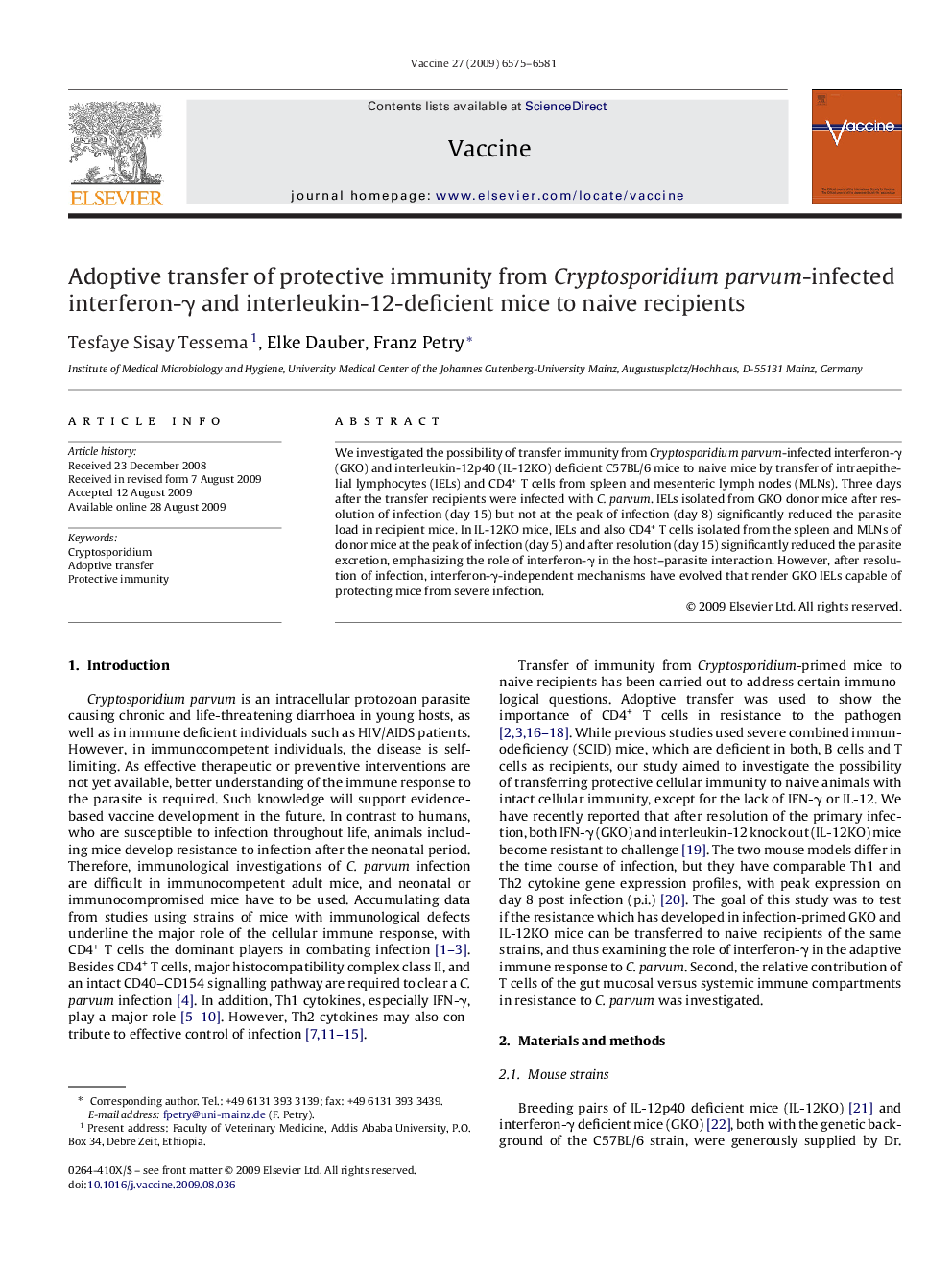| Article ID | Journal | Published Year | Pages | File Type |
|---|---|---|---|---|
| 2404670 | Vaccine | 2009 | 7 Pages |
We investigated the possibility of transfer immunity from Cryptosporidium parvum-infected interferon-γ (GKO) and interleukin-12p40 (IL-12KO) deficient C57BL/6 mice to naive mice by transfer of intraepithelial lymphocytes (IELs) and CD4+ T cells from spleen and mesenteric lymph nodes (MLNs). Three days after the transfer recipients were infected with C. parvum. IELs isolated from GKO donor mice after resolution of infection (day 15) but not at the peak of infection (day 8) significantly reduced the parasite load in recipient mice. In IL-12KO mice, IELs and also CD4+ T cells isolated from the spleen and MLNs of donor mice at the peak of infection (day 5) and after resolution (day 15) significantly reduced the parasite excretion, emphasizing the role of interferon-γ in the host–parasite interaction. However, after resolution of infection, interferon-γ-independent mechanisms have evolved that render GKO IELs capable of protecting mice from severe infection.
